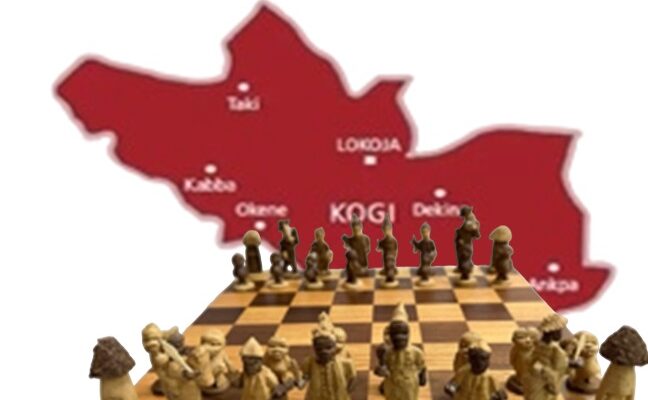The contemporary contestation between Kogi State and its Eastern heartland is not a mere quarrel of factions; it is the archetypal tragedy of a polity at war with its own genesis. It is the paradox of an axe cleaving the very timber from which it was hewn, of a river seeking to drown its source, of an eagle that forgets the nest that first bore its wings. Such is the riddle of Kogi East, once the fulcrum of authority, now the fractured limb of a commonwealth it helped to midwife.
The history of political ascendancy in Kogi East was monumental. For nearly two decades, Igala dominance was unassailable, towering like a basalt column amidst shifting sands. But in politics, as in empires, grandeur carries the seed of decline. As Edward Gibbon observed of Rome, “The decline was the natural effect of immoderate greatness.” The Igala elite, rather than forging unity into permanence, converted strength into factionalism and destiny into rivalry. In so doing, they became not guardians but undertakers of their own dominion.
The Central and Western blocs studied the weaknesses of the East with the patience of sculptors. The Egbira, disciplined as iron fused in a single forge, crystallized behind one leadership. The Okun, fluid yet determined, gathered their streams into a river that could not be ignored. The East, however, dissipated into quarrelling atoms—brilliant individually but impotent collectively. In the end, they stood like torches scattered in the rain: each flickering, none enduring.
This disarticulation is not merely a political miscalculation; it is a civilizational lapse. For when a people abdicate collective vision, they exchange crowns for crumbs. Chinua Achebe once cautioned, “A man who brings home ant-infested firewood should not complain when lizards visit.” By their short-sighted calculations, the Igala elite invited the lizards of irrelevance. The kingdom that once gave Kogi its spine now negotiates for cartilage.
Yet the way forward is neither nostalgia nor recrimination; it is renaissance. Renewal will not come from rhetorical lamentations but from covenantal realignment. The Attah Igala, guardian of ancestral legitimacy, must summon his people to solemn reconciliation. The diaspora, with its reservoirs of capital and intellect, must reinvest not merely in roads or scholarships, but in the architecture of political solidarity. The youth, restless and ambitious, must resist being pawns in recycled rivalries and instead demand a unified front.
For if the axe destroys the tree, it too lies useless on the forest floor. If the foundation crumbles, the edifice collapses on both prince and pauper alike. As Chines insists “A man who waits for roast duck to fly into his mouth must wait a long time.” – one must act with responsibility and effort.
The responsibility before Kogi East is monumental: to reconstitute itself into a pillar of unyielding cohesion, or to sink permanently into the sediment of political history.
The hour of decision has struck. The axe must return to serve the tree, and the tree must refuse to nourish division. Only then will Kogi East cease to be the quarry of its own undoing and rise once more as the granite upon which the State finds stability.
– Inah Boniface Ocholi writes from Ayah – Igalamela/Odolu LGA, Kogi state.
08152094428 (SMS Only)




